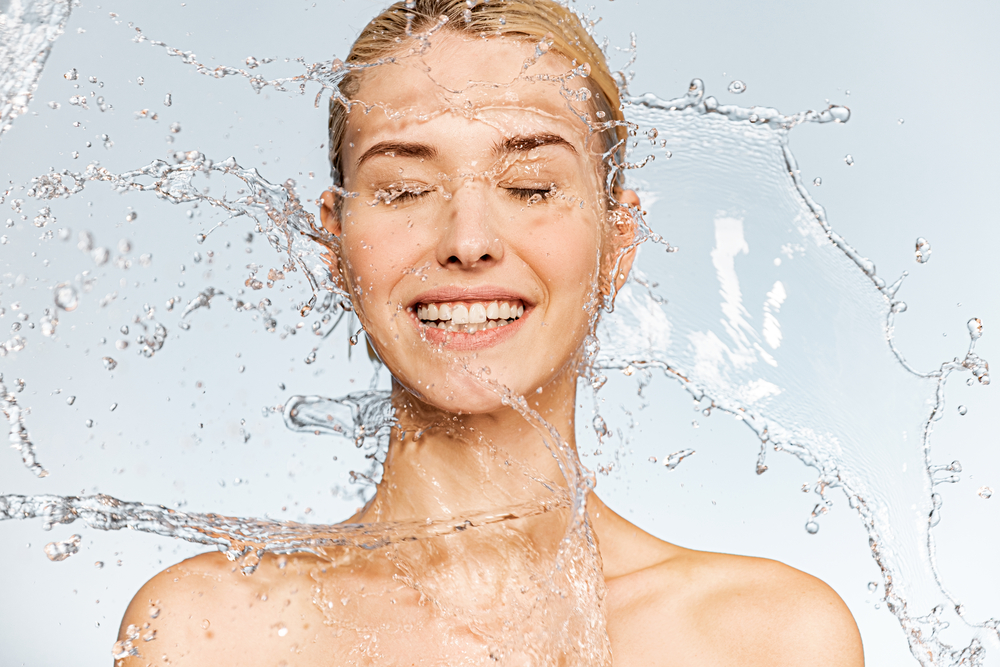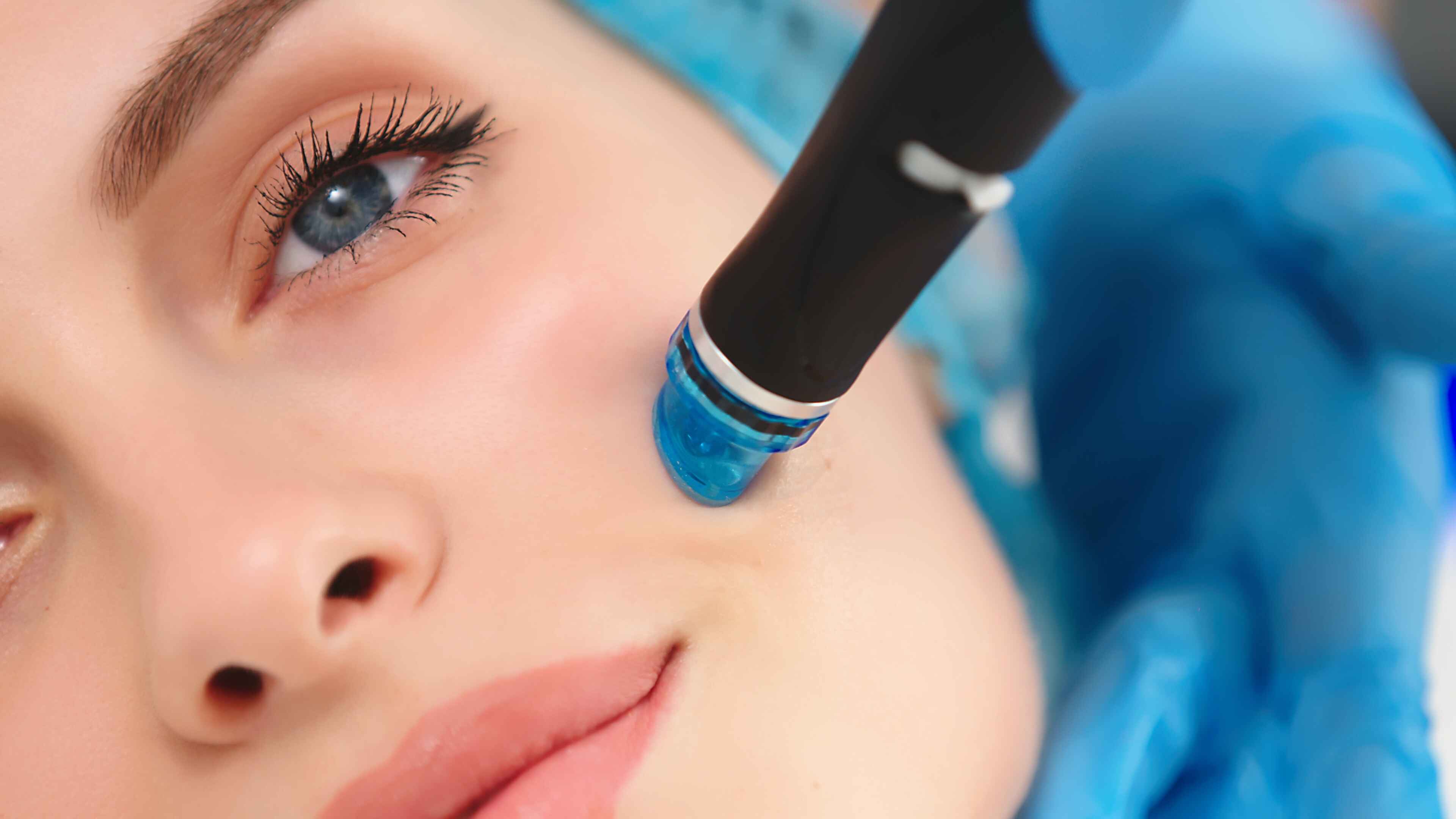10 Benefits of Hyaluronic Acid
Written By: Dr. Mona Mady
Updated On:December 26, 2023

What is Hyaluronic Acid?
Our tissues are naturally lubricated by hyaluronic acid, which is produced by the body. It affects numerous other biological systems and processes, including bone strength, skin health, and wound healing. Your body naturally produces hyaluronic acid, commonly referred to as hyaluronan, which is a transparent, sticky material.
The areas of your skin, connective tissue, and eyes contain the most of it. Its major job is to hold onto water so that it can keep your tissues lubricated and moist.
The uses of hyaluronic acid are numerous. The ingredient is utilized in topical serums, eye drops, and injections in addition to being taken by many individuals as a supplement.
Application of Hyaluronic Acid
There are numerous methods for consuming hyaluronic acid (either on its own or in combination products). Many are offered over-the-counter. Some require a prescription from a doctor as certain cases necessitate consulting a qualified medical expert. Hyaluronic acid can be taken by mouth, as topical treatment, as eye drops, for intimate contact, by injection, under your skin, in your nose, or by an inhaler.
- By mouth: Hyaluronic acid is ingested orally and is found in tablets and nutritional supplements. Even a liquid form is available, which you can mix with water and consume. Hyaluronic acid can be taken orally and has various advantages. They include lessening the discomfort caused by arthritis, enhancing skin health, and more.
- On your skin: Hyaluronic acid skin care products exist in a variety of forms. They consist of shampoos, creams, gels, ointments, patches, lotions, and shampoos. Moreover, you may purchase hyaluronic acid powder, which you can combine with water to make a hyaluronic acid serum that you can use on your skin. Applying hyaluronic acid to your skin has positive effects. It's particularly helpful for minimizing the visibility of wrinkles and aging lines.
- Eye drops: Hyaluronic acid is present in a wide range of eye drops.
- For intimate contact: In particular for women going through menopause, hyaluronic acid is a prominent component in gels, lotions, and personal lubricants for vaginal dryness or soreness.
- Via injection: Arthritis-related joint pain can be relieved by hyaluronic acid injections. Moreover, it is frequently utilized with drugs administered by IV. It may be prescribed by doctors off-label to relieve bladder pain (such as pain caused by interstitial cystitis).
- Beneath your skin: Hyaluronic acid and collagen, a naturally occurring protein in your body, are allowed as fillers for injection under your skin. When used to heal acne scars or add volume to the lips, these fillers aid in restoring the body's natural shape and look.
- In the nose: Hyaluronic acid is used in some medications because it aids in absorption, particularly when administered through the nose.
- Via an inhaler: Hyaluronic acid can treat respiratory (breathing) issues like infections or asthma using an inhaler or nebulizer.
Benefits of Hyaluronic Acid
Hyaluronic acid is used in a variety of biomedical applications due to its distinct viscoelasticity and low immunogenicity. Hyaluronic acid has gained popularity as a skin care product. Hyaluronic acid gels, lotions, and serums are said to prevent wrinkles and other signs of aging while also improving the overall appearance of your face. Hyaluronic acid aids in the development of soft tissues, stimulates the production of collagen and elastin by the body, moisturizes the skin, avoids tightness, boosts suppleness, and lessens scarring. Below is a list of the most prominent benefits of hyaluronic acid for the skin.
Hydrates the skin
Hyaluronic acid equals hydration. Hyaluronic acid penetrates the skin, binds water to skin cells, and provides the skin's entire surface with beneficial, revitalizing moisture. With other products, pure hyaluronic acid serum can be layered. It also doesn't require a ton of additional ingredients or fillers to work.
Hyaluronic Acid is a Humectant
A humectant is similar to a sponge in that it will continue to absorb and hold onto moisture even after it has been gathered. Humectants draw water and permit hydrogen bonds. Ingredients like glycerin, sorbitol (sugar alcohol), hexylene and butylene glycol, and of course hyaluronic acid are examples of humectants used in skincare products.
Hyaluronic acid functions as a humectant and continues to take moisture from the environment after providing the epidermis (top layer of the skin) with essential moisture. The skin will receive constant hydration as a result.
Enhances your skin’s lipid barrier
The epidermis, the top layer of skin, is most heavily damaged by external factors (toxins). The lipid barrier, which is made up of fatty acids that keep water in and keep irritants out of the skin, weakens with age. Damage is caused by a variety of factors, including UV radiation, environmental pollution, and dietary habits like smoking. More fine lines and wrinkles, dark spots, and drier skin are all effects of this damage.
Hyaluronic Acid strengthens the skin's natural defenses to aid in securing moisture for a more potent moisturizing impact. This can assist to preserve and strengthen the lipid barrier over time by slowing down its degradation.
Increases your skin’s resilience
Hyaluronic acid helps the skin protect itself against environmental toxins and aging causes. Preservatives, which are present in many items, might weaken your defenses by destroying the beneficial microorganisms that protect your skin's surface from toxins. Moisture is lost as a result, and discomfort or infection may even occur. Search for items with few preservatives and few substances. Many people who have oily or acne-prone skin prefer to use more abrasive chemicals to "strip" the skin of oil. It's crucial to understand that most acne-prone skin lacks a robust lipid barrier, which promotes irritation and inflammation. Pure Hyaluronic Serum is advised since it provides moisture and protects the lipid barrier.
Tightens your skin tone
Elastin in the skin breaks down as we age, causing the skin to lose its snap and bounceback. Pinch the skin on the top of your hand to quickly test your elastin (the bounceback). You still have a lot of elastin if it snaps back rapidly. The skin won't recover as quickly as it once did as you age.
Hyaluronic acid can aid with the appearance of tightness in the skin, but it won't replace your elastin. Hyaluronic acid tightens the overall complexion by hydrating the skin. It contributes to a more youthful appearance by firming the facial features.
Softens your skin’s texture
Hyaluronic acid smooths the skin's texture in a manner similar to how it makes the skin appear tighter. This produces a finish that is both visible and tactilely velvety. Hyaluronic acid won't cover acne scars that are clearly visible on the skin. Yet over time, using hyaluronic acid along with a device like a dermaroller can make skin look smoother.
Provides you with youthful skin
By keeping moisture in the skin and reducing the appearance of fine lines and wrinkles, hyaluronic acid gives the appearance of plumping the skin. Increased skin cell production can occur when the skin is well-protected and well-hydrated because it won't have to work as hard to stay hydrated. Skin cells become smoother and plumper as a result.
Stimulates Cells
Hyaluronic acid helps enhance skin cell regeneration by providing the skin with additional hydration and barrier protection, even while it won't hasten the process of cell renewal. This naturally results in healthier cells and a complexion that is more radiant.
Evens skin tone
Hyaluronic acid aids in reducing and preventing age spots and pigmentation problems when there is an increase in cell turnover. To accomplish this, hyaluronic acid should be combined with a vitamin C serum or booster product when treating dark spots.
Gives you clear skin
Oily skin overcompensates by creating excess oil to moisturize the skin when it loses moisture (water). It's a common assumption that skin types that are oily and acne-prone don't require hydration, but this is untrue. Hyaluronic acid could provide this hydration and would give your skin clarity.
Using Hyaluronic Acid Safely
Hyaluronic acid occasionally causes an allergic response. Before prescribing medication, your doctor will inquire about any allergies you may have. You should first carefully study the directions and ingredients before using over-the-counter hyaluronic acid.
Inform your doctor straight once if you develop any skin infections, knee joint infections, or other problems close to the injection site for hyaluronic acid. Similar to this, it's advisable to receive hyaluronic acid treatment before treating a joint effusion (excessive fluid in your knees).
Moreover, make sure to let your doctor know if you use any additional prescriptions. Hyaluronic acid and some over-the-counter and prescription medications may interact. Before administering hyaluronic acid to you, your doctor may adjust the dosage of your medications or take other safety precautions.
Conclusion
To conclude, hyaluronic acid is a naturally occurring polysaccharide that is present throughout the body and has great physicochemical qualities such as being biodegradable, biocompatible, nontoxic, and immune-suppressive. As a result, hyaluronic acid has been extensively used for several medical applications, including medicine delivery, TE, OA surgery, ophthalmic surgery, and plastic surgery. Hyaluronic acid has been thoroughly investigated as a new drug carrier for target-specific and long-acting administration of protein, peptide, and nucleotide therapies, in particular due to the significant influence of drug delivery applications.
References
Bukhari, S. N. A., Roswandi, N. L., Waqas, M., Habib, H., Hussain, F., Khan, S., ... & Hussain, Z. (2018). Hyaluronic acid, a promising skin rejuvenating biomedicine: A review of recent updates and pre-clinical and clinical investigations on cosmetic and nutricosmetic effects. International journal of biological macromolecules, 120, 1682-1695.
Narurkar, V. A., Fabi, S. G., Bucay, V. W., Tedaldi, R., Downie, J. B., Zeichner, J. A., ... & Vega, V. L. (2016). Rejuvenating hydrator: restoring epidermal hyaluronic acid homeostasis with instant benefits. J Drugs Dermatol, 15(1 Suppl 2), s24-s37.
Neuman, M. G., Nanau, R. M., Oruña-Sanchez, L., & Coto, G. (2015). Hyaluronic acid and wound healing. Journal of pharmacy & pharmaceutical sciences, 18(1), 53-60.
Papakonstantinou, E., Roth, M., & Karakiulakis, G. (2012). Hyaluronic acid: A key molecule in skin aging. Dermato-endocrinology, 4(3), 253-258.
Meet our doctors from the Dermatology & Aesthetics department
















































